The importance of sharing our roots: ecotourism in the Laguna Om ejido
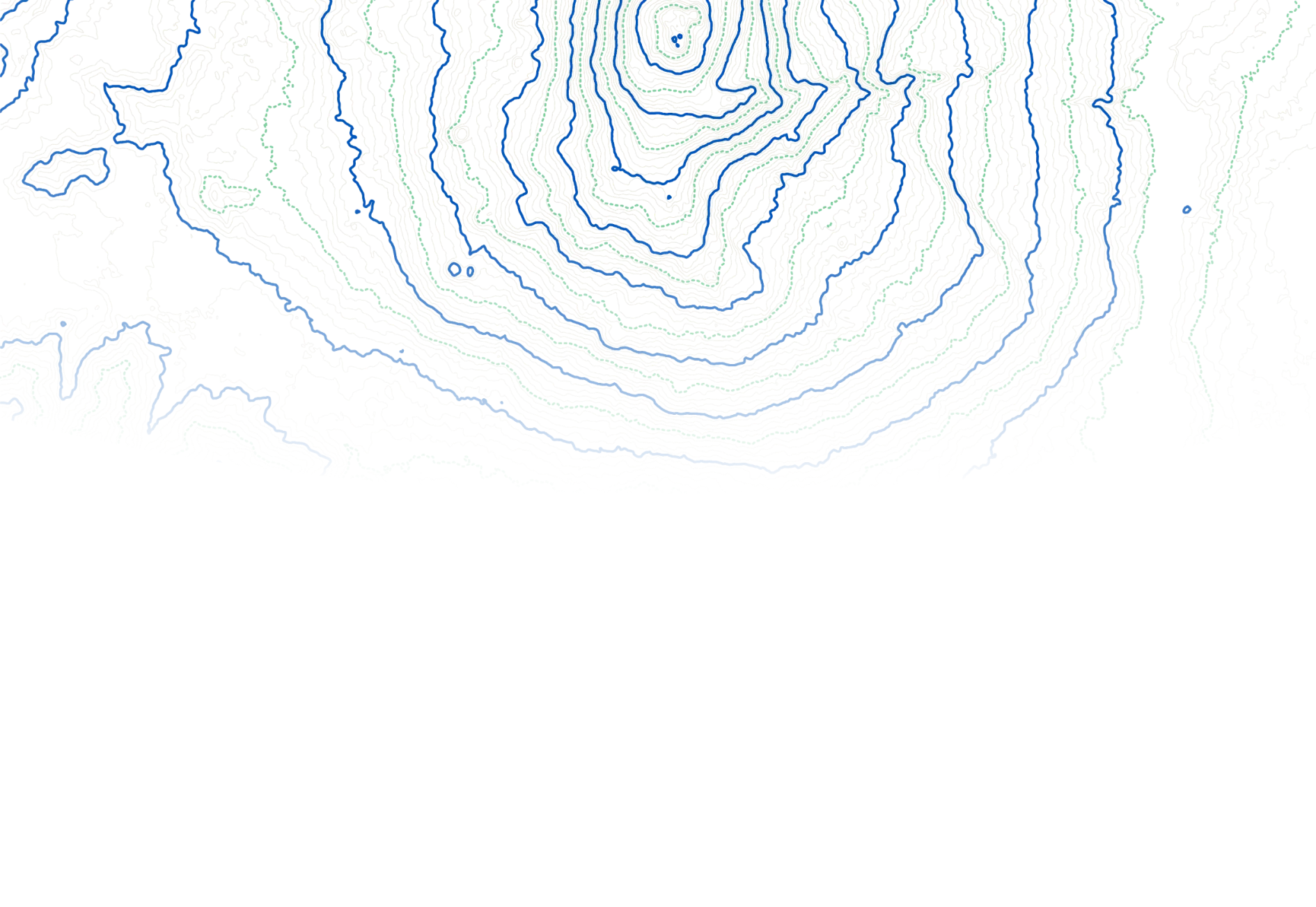

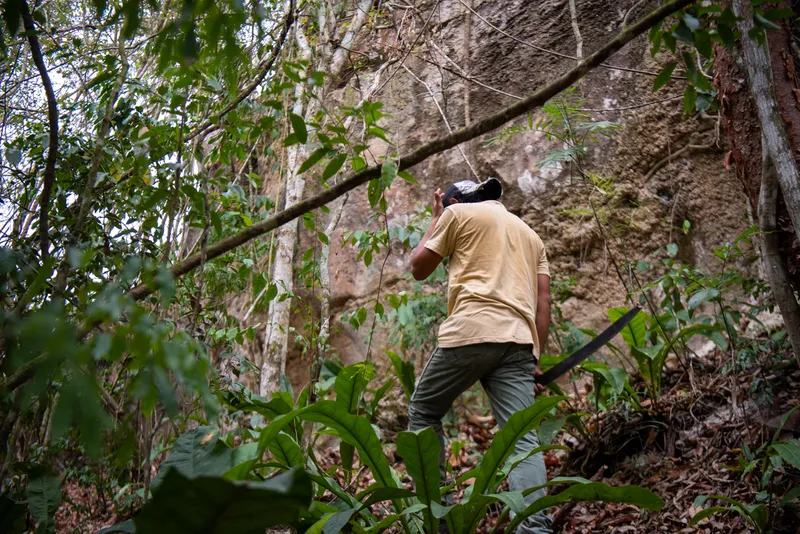
'I am originally from the town of Nicolás Bravo, in the beautiful Laguna Om ejido in the state of Quintana Roo. I am an ejidatario by inheritance, my grandparents were founders; my parents, some of the first members. I grew up here, I made my life here and I hope I'm going to die here' - that's how René begins to tell us the story that frames his passion for sharing what his ejido has taught him.
More than seventy years ago, Laguna Om was a chiclero camp; in the 1980s, productive activity changed and the community was intensively dedicated to the logging of mahogany and cedar, a situation that further violated an ecosystem that by the time was already full of wounds and with fewer and fewer resins and precious woods. Nowadays, the situation is very different from the one that originated this ejido, since it has more than 80,000 hectares of jungle, of which something like a third are under a conservation category established voluntarily by the community that protects it.
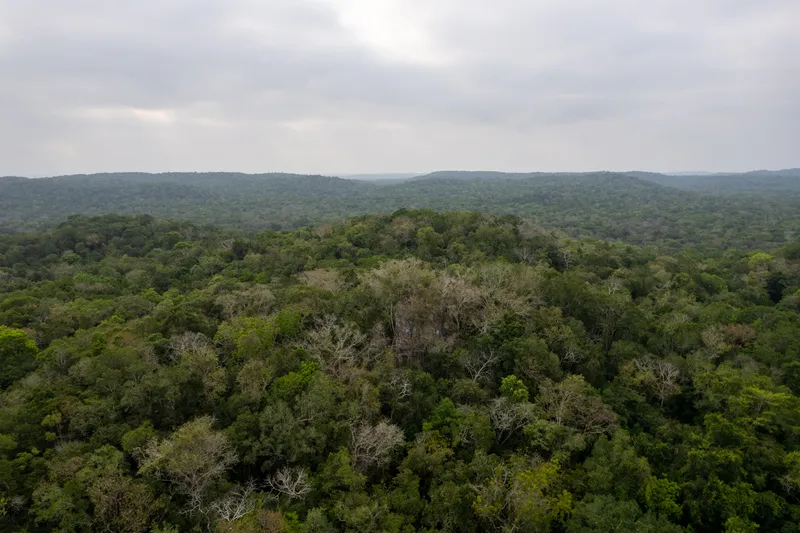
Immensity of the jungle of the Laguna Om ejido
'I start to be interested in nature from the moment I know the right [to be an ejidatario]. Once I become an ejidatario, I am anxious to know what exists in our jungle. I am an active community guard, because all this puts me in contact with nature and that's where this need to preserve, to show the rest of the world the beauty we have here. In 2022 I created my own tourism company, the name refers to the danta [tapir], which is the largest mammal in the region. Personally, I think it's impressive, an exquisite animal to study and I decide to adopt this name and focus more on nature tourism: I do it because I am interested in showing the greatness of this ejido'. Many years of conventional tourism marked by exploitation and excessive consumption have forced us to search for alternatives to this activity: the current challenges we face - the climate, social and environmental crisis - mean that allowing us leisure, recreation, learning and the enjoyment of life, while promoting the preservation of identities, cultures, ecosystems and biodiversity, as well as thousands of years of knowledge and stories, becomes a common urgency, beyond a luxury for the few.
Under this need to rethink tourism and its implications, René Dzul Ramírez seeks to host this transition, because with his passion for sharing the identity and beauty of his ejido with the world, the conservation and preservation of his magnificent jungle is possible.
'The first ecotourism experience I had in my own ejido was showing the Chakanbakán Lagoon. I explained to these people [tourists] the importance of bodies of water, because thanks to them, the first human settlements in the region were possible, since water was used by chicleros both for consumption and for cooking chewing gum. It was because of this gap that the first communities in the area were created. It was an eye-opening experience for me, that It let me see the enormous potential to explain to the rest of the world why my land is what it is'. As René rightly points out, ecotourism is an activity with enormous potential, because the first step in achieving the protection and conservation of nature involves experiencing it, being amazed by its greatness and its very diverse forms, feeling it infinite, but also accepting it as fragile and vulnerable.
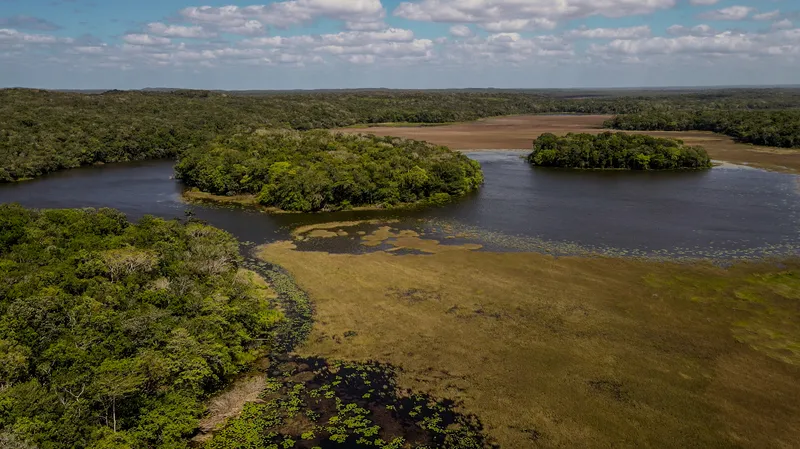
Chakanbakán Lagoon, Laguna Om ejido
'The jungle is, without a doubt, an attraction for international tourists, since European countries - our biggest visitors are German and French - do not have this type of vegetation. They have never seen a jaguar, a tapir, a peccary, a deer or a monkey on their land. A great advantage is having people from the community, because they are the ones who have the preparation and knowledge of the environment: it's not the same thing that anyone tells you about it, but that the community that lives in the jungle every day tells you. When tourists see the magnitude of the jungle we have, it's incredible. We tell them about the cedar, about what we do with it; we tell them about the dye stick, its history, the wars that went on for it, how we make paddocks with its wood; we explain to them about the sapote tree, how it has lasted over the years, how the ancient Mayans used it. Something that for us is common, for them it is very interesting. This is who we are and the most incredible thing is that it is an economic benefit for the community. We tell them about jaguars, about their role as biological controllers, about their importance as predators of peccary, deer. I repeat: I grew up here, I lived my life here and I hope I'm going to die here. '
One thing that moves us greatly in René's words is his love for his land, its inhabitants and its history. In a world where migration from the countryside to the city is a constant that threatens to abandon rurality -with all the social and ecosystem implications that this brings with it- René is committed to ecotourism and thinks the opposite: 'the importance of having this economic activity in the community is prevent the migration of young people, that you don't have to go to Cancun or to a more populated center, that they can thrive in the place where they were born and grow. By preserving, we are helping to promote work, giving lessons in caring for the environment that are extremely necessary today, because beyond being involved in programs of carbon credits and nature conservation, caring for the environment is a guarantee that tomorrow this fauna and flora will be the heritage of future generations'.
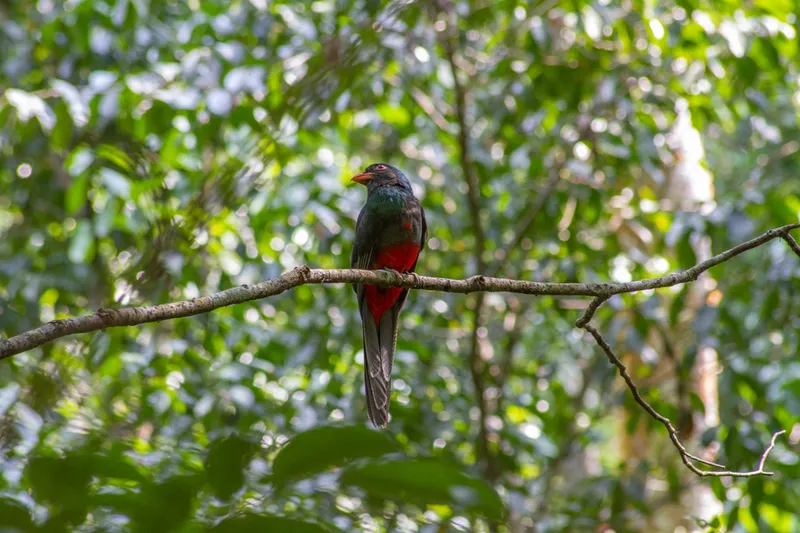
Trogon Massena, seen in the Laguna Om ejido
With the help of the ejidatarios of Laguna Om, we developed a nature conservation and forest carbon sequestration project, which, as René rightly mentions, is compatible with other activities that promote conservation alike. This is one of the reasons why we want his voice to go even further, because his testimony is the living example that there are as many ways to protect a territory as we want it.
Ecotourism is presented as an integral tool for the social and economic development of communities, while adding to that deep connection between community and ecosystem, always present and rarely referred to as such, which promotes an appropriation of local biocultural heritage. It is imperative to recognize that ecotourism not only represents an opportunity for the preservation of nature, but - as René affirms - also a remunerated way of life for those who inhabit that nature, demonstrating that it is possible to live from conservation. This synergy between economic development and the preservation of local ecosystems not only guarantees the survival of biodiversity, but also promotes an awareness that goes beyond; one that is committed to the responsibility inherent to relating to a living environment that sustains us.
'I see great ecotourism potential in my ejido; I would like to work here because the ejido has given me a lot, from the opportunity to be an ejidatario, to the opportunity to have a house, family and all the elements that surround me; so I have to give it back, right? What it has given me through tourism, where our communities are involved in preserving this beautiful place, it's a way of life for me and for the future of Laguna Om. I am proud to do what I do, because I do it for my community and for the protection of our culture and identity'.
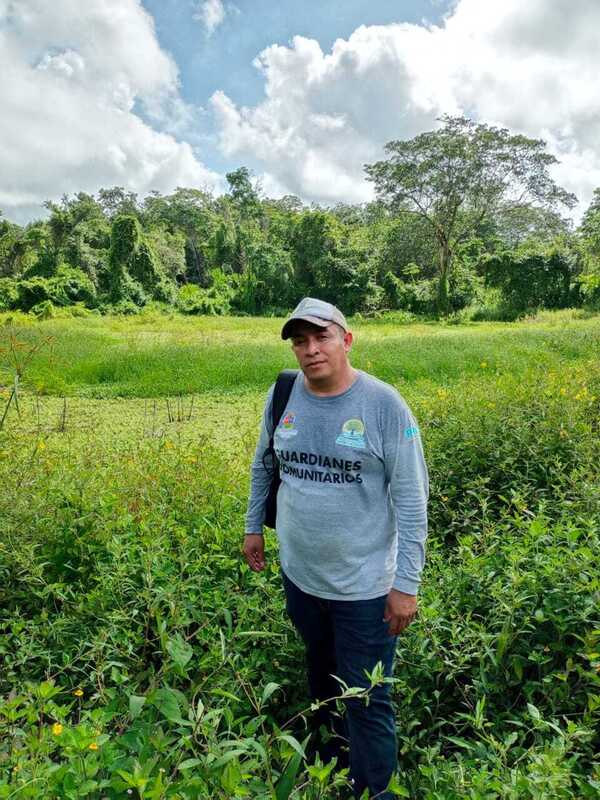
René Dzul Ramírez
Acknowledgements
To René Dzul Ramírez for telling us about his experience; to Elva María Leyva Cruz, Project Development Coordinator in Toronto for facilitating this beautiful dialogue.
About the author
Sandra is Executive Editor in Toroto. She studied biology, is passionate about the different forms of life that exist on the planet and is fully committed to protecting and conserving them.
Explore reflections, research and field learning from our work in ecosystem restoration.